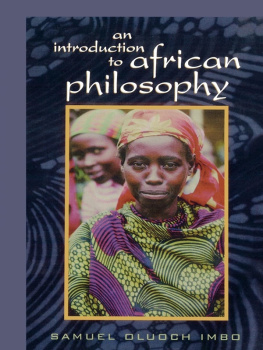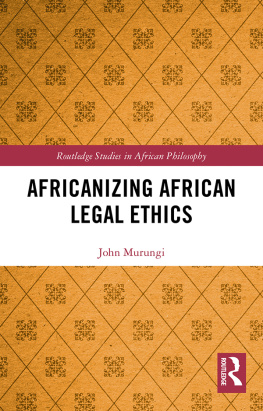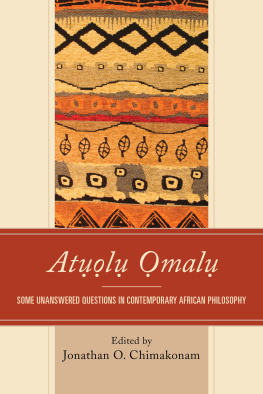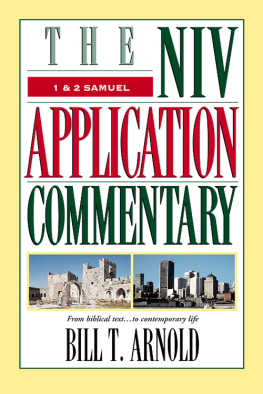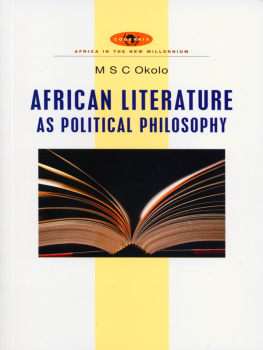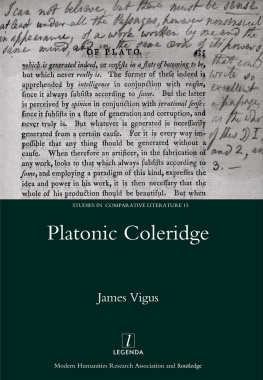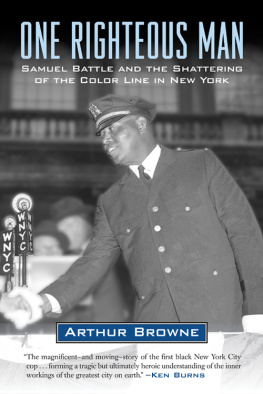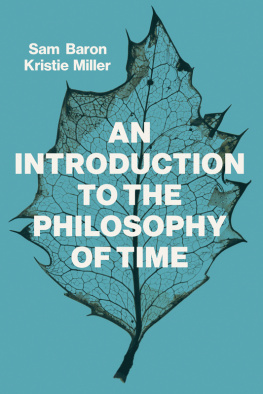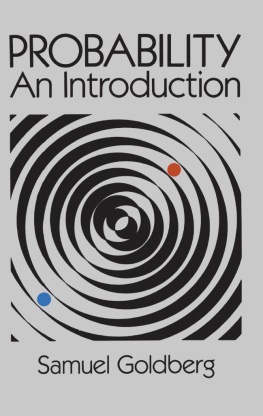Samuel Oluoch Imbo - An Introduction to African Philosophy
Here you can read online Samuel Oluoch Imbo - An Introduction to African Philosophy full text of the book (entire story) in english for free. Download pdf and epub, get meaning, cover and reviews about this ebook. year: 1998, publisher: Rowman & Littlefield Publishers, genre: Science. Description of the work, (preface) as well as reviews are available. Best literature library LitArk.com created for fans of good reading and offers a wide selection of genres:
Romance novel
Science fiction
Adventure
Detective
Science
History
Home and family
Prose
Art
Politics
Computer
Non-fiction
Religion
Business
Children
Humor
Choose a favorite category and find really read worthwhile books. Enjoy immersion in the world of imagination, feel the emotions of the characters or learn something new for yourself, make an fascinating discovery.
- Book:An Introduction to African Philosophy
- Author:
- Publisher:Rowman & Littlefield Publishers
- Genre:
- Year:1998
- Rating:4 / 5
- Favourites:Add to favourites
- Your mark:
- 80
- 1
- 2
- 3
- 4
- 5
An Introduction to African Philosophy: summary, description and annotation
We offer to read an annotation, description, summary or preface (depends on what the author of the book "An Introduction to African Philosophy" wrote himself). If you haven't found the necessary information about the book — write in the comments, we will try to find it.
An Introduction to African Philosophy — read online for free the complete book (whole text) full work
Below is the text of the book, divided by pages. System saving the place of the last page read, allows you to conveniently read the book "An Introduction to African Philosophy" online for free, without having to search again every time where you left off. Put a bookmark, and you can go to the page where you finished reading at any time.
Font size:
Interval:
Bookmark:
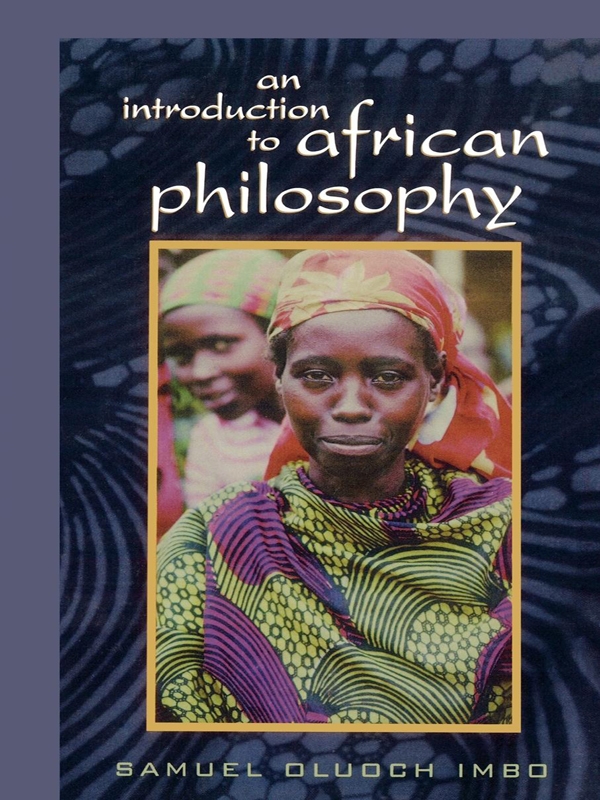
I owe a huge debt of gratitude to many people who have contributed to this book over the years. First, my teachers, especially the late Henry Odera Oruka, who together with Dismas Masolo introduced me to comparative philosophy. Next, my students at Purdue University Calumet and at Hamline University, who unfailingly asked the crucial questions that challenged me to clarify my positions on the topics discussed here.
I am very grateful to Jeffrey Crawford, whose extensive comments on the manuscript at various stages were extremely useful. His suggestions, even those I did not agree with, made the book clearer than it might otherwise have been. Emmanuel Eze and Bill Lawson provided additional constructive guidance that made me revisit some previously unclear arguments.
My institution, Hamline University, provided a most supportive environment in which to finish writing this book. I particularly want to acknowledge the debt to my colleagues in the philosophy department, Duane Cady, Nancy Holland, and Stephen Kellert, for listening and providing opportunities for ongoing dialogue on these topics. Support from the College of Liberal Arts came in the form of the Hanna Grant, which freed me from material concerns during the summer of 1997.
Finally, my wife, Yu-jung Hu, to whom this book is dedicated. She was the first reader of every chapter and also typed and computer edited the manuscript through all its stages. Without her love, inspiration, and encouragement, this book would not have been completed.
Samuel Oluoch Imbo is assistant professor of philosophy and the co-director of the African American Studies Program at Hamline University in St. Paul, Minnesota. He received his Ph.D. from Purdue University. He teaches and writes in the areas of comparative philosophy, African philosophy, and social and political philosophy.
As we near the turn of the century, African philosophy is undergoing turns of its own. This is a unique opportunity to pause, take stock, and articulate with clarity and consistency the direction that will be taken in the future in light of what has gone before. Contemporary African philosophy must come to terms with its history and how that history helps or hinders the encounter with modernity. But because modernity is usually associated with science and Western thought systems, contemporary African intellectuals face what may be called the dilemma of modernity. The French critical theorist Jean Baudrillard aptly captures how this dilemma arises:
Modernity is neither a sociological concept, nor a political concept, nor exactly a historical concept. It is a characteristic mode of civilization which opposes itself to tradition, that is to say, to all other anterior or traditional cultures: confronting the geographic and symbolic diversity of the latter, modernity imposes itself throughout the world as a homogeneous unity, irradiating from the Occident.
Although modernity is desirable, for the African it has always seemed to be something of alien parentage to be understood only in reference to the Middle Ages, the Renaissance, the Industrial Revolution, and the cataclysmic changes of this century (changes, we may note, in which Africas agency was minimal or nonexistent). Not only is it foreign, but modernity destroys the traditional cultures with which it comes in contact. Here is Baudrillard again: As the canonical morality of change, it opposes itself to the canonical morality of tradition, but it is nevertheless just as wary of radical change. Baudrillards insight means that for African philosophy the dilemma is how to navigate between its own historical situatedness on the one hand, and on the other its project of decentering modernity in ways that make manifest a plurality of methods of knowledge production. This is the tension between a historical particularity and universalism. If African philosophers and intellectuals are to grapple successfully with the project of modernity, they must bring under suspicion all paradigms of knowledge production and organization that claim to be ahistorical and epistemologically transcendental. The challenge must be made without at the same time lapsing into the paralyzing postmodernist relativism whose clarion call is the incommensurability of discourses. To arrive at the position that the various ways of knowledge production are just so different that one way cannot be understood using the methods of another way is to lapse into the essentialism of, say, an Afrocentrist who responds to the skeptical questioner with Its a black thing you just would not understand. The appropriate response to modernity would not be for African philosophy to replace Eurocentric visions of modernity with Afrocentric ones, but to proceed in a way that allows for transcultural and indeed transnational communication. African philosophy must be wary of repeating the mistakes of Europe. It is therefore imperative that African philosophers come face to face with their practice to root out features that may perpetuate the phase characterized by literature devoted to answering the question, Is there an African philosophy? The concern with identity was concurrent with a phase characterized by debate about what should count as a text and indeed on the intellectual merits of different texts. There are three lessons these phases hold for the future of the practice of African philosophy:
1. A meaningful practice will be wary of anachronism in interpretation, that is, the habit of throwing out as confused or irrational any views that do not fit the scheme of the interpreter.
2. It will avoid giving the false impression of inevitability, as if the thinkers taking part in these debates were a disciplined army marching toward the objective of modern thought.
3. It will be careful about being betrayed by philosophical or other prejudices into an unjust and uncritical treatment of contending views.
The wave of the future will be for African philosophy to turn from the last thirty years preoccupation with definition. Even more importantly, however, African philosophy will have to combine its substantive discussions with vigorous efforts to form alliances with African Americans and feminists who also have been denied or excluded from participation in the history of ideas. It is these connections that will situate African philosophy in the broader context that offers exciting possibilities for the future of our practice.
Jean Baudrillard, Modernity, Canadian Journal of Political and Social Theory /Revue canadienne de thorie politique et sociale 11, no. 3 (1987): 63-72.
Baudrillard, Modernity, 63.
Appiah, Kwame Anthony. African-American Philosophy? The Philosophical Forum 24, no. 1-3 (1992-93): 11-34.
Baudrillard, Jean. Modernity. Canadian Journal of Political and Social Theory/ Revue canadienne de thorie politique et sociale 11, no. 3 (1987): 63-72.
Bell, Richard H. Narrative in African Philosophy. Philosophy 64 (1989): 363-79.
Bodunrin, Peter. The Question of African Philosophy. Philosophy 56, no. 216 (April 1981): 167-79.
Cancel, Robert. African-Language Literatures: Perspectives on Cultures and Identity. In A History of Twentieth-Century African Literatures, ed. Oyekan Owomoyela. Lincoln and London: University of Nebraska Press, 1993.
Du Bois, W. E. B. The Conservation of Races. In African Philosophy: Selected Readings, ed. Albert Mosley. Englewood Cliffs, N.J.: Prentice Hall, 1995.
Font size:
Interval:
Bookmark:
Similar books «An Introduction to African Philosophy»
Look at similar books to An Introduction to African Philosophy. We have selected literature similar in name and meaning in the hope of providing readers with more options to find new, interesting, not yet read works.
Discussion, reviews of the book An Introduction to African Philosophy and just readers' own opinions. Leave your comments, write what you think about the work, its meaning or the main characters. Specify what exactly you liked and what you didn't like, and why you think so.

